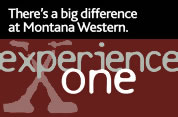|
Honors Program: A pathway to excellence.
HON 302 Multicultural Leadership
This course examines how cultural diversity presents major challenges and opportunities in a changing global society today.
GOALS:
1. An in-depth understanding of national and diverse selected global cultures.
2. An in-depth understanding of sub-cultures within a mainstream culture.
3. To develop interdisciplinary perspectives and critical analysis of a given culture covering multiple areas such as historical, anthropological, economic, ethical, legal, religious, sociological, technological and political.
4. To apply leadership theory and concept to cultural conflicts and their resolution.
EXPERIENTIAL EXERCISES:
Each group of students will select a culture. [e.g. China, India, American, Japanese, African, Native Americans, Saudi Arabia, Mexico, Canada, UK, Germany, France.]
Lectures and readings, as well as research on the web will be used as resources for exploration of each culture. A preliminary list of readings follows.
Presentations by each group, and their critique covering historical, economic, business, legal, and political dimensions of a specific culture. Additionally each group will conduct a comparative analysis of their culture with another culture of their choice.
TOPICS
Multiculturalism: Definitions and Models. Stereotypes of U.S. Culture and Stereotypes of Persons in Other
Cultures. Related concepts to be covered: Enculturation; Acculturation; Ethnocentrism.
Norms, Rules, Roles, and Networks; Intercultural Constructs nationally and globally.
Leadership Roles in Universal Systems: Economic Systems [e.g. United States, Canada, England, Japan, Mexico]. Political Systems. [USA, Canada, England, Iran, Japan, Mexico, Saudi Arabia]. Marriage and Family Systems [USA, Canada, France, Germany Japan, Mexico, Saudi Arabia, India]
Social Hierarchies and Interaction [USA, Canada, England, Japan, Mexico, Saudi Arabia, China, India.]
Contrasting Cultural Values.
Semantic Differences; Attribution and Perception; Attitudes toward women, Work attitudes, Attitudes toward Ethics, Religious Influences. Oral and Nonverbal Communication Patterns [Paralanguage/Metacommunication; Chromemics; Proxemics; Oculesics; Olfactis, haptics, Kenescis [e.g. facial expressions, gestures, posture and stance; silce].
Culture Shock. [Stages; Aspects; Cultural Stress; Social Alienation; Social Class and Poverty; Wealth Extremes; Restorative Justice].
Intercultural Negotiation Process [cross-cultural negotiations; Intercultural negotiation models [socio-psychological model; Principles models; Directional Mode; Win-Lose Model; Win-Win mode; Package Deal [or Strategic Combination] Model. Group Conflicts arising from cultural beliefs and conflict resolution. Mediation techniques and practice in different cultures: their relevance and utility.
Laws Affecting International Travel and Business. [home country and host country laws; international law; contracts; ethics and the law; international travel and law; country-specific considerations.
WHAT WILL STUDENTS LEARN OR OUTCOMES OF THIS COURSE
A. Students will become effective leaders by developing sensitivity and empathy [emotional intelligence[ to diverse belief systems and attitudes.
B. Students will become better citizens by understanding the role of culture in practicing core American values: such as equality or non-discrimination, achievement orientation, mobility, freedom, social justice and diversity.
C. Students will learn a variety of ethical orientations on social issues [e.g. abortion, gay marriage, role of religion in politics, family values, capital punishment, health care issues, business issues such as profit, cost leadership, quality of product, customer satisfaction, and social responsibility.
D. Learn critical role of culture in framing arguments, negotiations, managing change, and a variety of ethical dilemmas arising from diversity within USA as well as globally.
_____________________________________
Substitutions: HON302 will substitute for
ANTH 336; SOC 300; SOC 320. SOC 310, and BUS 304.
Instructor: Dr. Jim Sethi
Time: Spring 2010, Block 8, 1:14-4:15 pm
|

 << back
next>>
<< back
next>>

